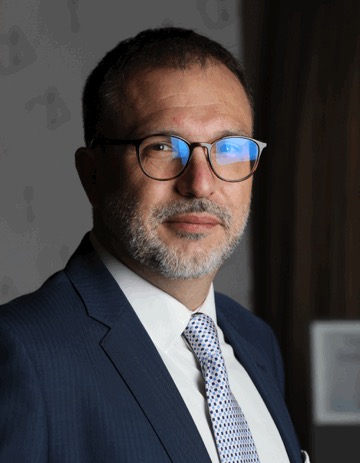Studying at the University of Verona
Here you can find information on the organisational aspects of the Programme, lecture timetables, learning activities and useful contact details for your time at the University, from enrolment to graduation.
Academic calendar
The academic calendar shows the deadlines and scheduled events that are relevant to students, teaching and technical-administrative staff of the University. Public holidays and University closures are also indicated. The academic year normally begins on 1 October each year and ends on 30 September of the following year.
Course calendar
The Academic Calendar sets out the degree programme lecture and exam timetables, as well as the relevant university closure dates..
| Period | From | To |
|---|---|---|
| 1° periodo lezioni - GEM | Oct 3, 2022 | Dec 23, 2022 |
| 2° periodo lezioni - GEM (febbraio/aprile) | Feb 13, 2023 | Apr 4, 2023 |
| 2° periodo lezioni - GEM (aprile/maggio) | Apr 12, 2023 | May 13, 2023 |
| Session | From | To |
|---|---|---|
| Sessione invernale - GEM - 2 appelli | Jan 9, 2023 | Feb 11, 2023 |
| Sessione estiva - GEM - 2 appelli | May 15, 2023 | Jul 22, 2023 |
| Sessione autunnale - GEM - 2 appelli | Aug 28, 2023 | Sep 30, 2023 |
| Session | From | To |
|---|---|---|
| Sessione autunnale - GEM - novembre 2022 | Nov 2, 2022 | Nov 2, 2022 |
| Sessione invernale - GEM - aprile 2023 | Apr 5, 2023 | Apr 5, 2023 |
| Sessione estiva - GEM - giugno 2023 | Jun 30, 2023 | Jun 30, 2023 |
| Period | From | To |
|---|---|---|
| Tutti i Santi | Nov 1, 2022 | Nov 1, 2022 |
| Festa dell’Immacolata | Dec 8, 2022 | Dec 8, 2022 |
| Vacanze natalizie | Dec 23, 2022 | Jan 8, 2023 |
| Vacanze di Pasqua | Apr 7, 2023 | Apr 10, 2023 |
| Festa della Liberazione | Apr 25, 2023 | Apr 25, 2023 |
| Festa del lavoro | May 1, 2023 | May 1, 2023 |
| Festività Santo Patrono | May 21, 2023 | May 21, 2023 |
| Festa della Repubblica | Jun 2, 2023 | Jun 2, 2023 |
Exam calendar
Exam dates and rounds are managed by the relevant Law Teaching and Student Services Unit.
To view all the exam sessions available, please use the Exam dashboard on ESSE3.
If you forgot your login details or have problems logging in, please contact the relevant IT HelpDesk, or check the login details recovery web page.
Should you have any doubts or questions, please check the Enrollment FAQs
Academic staff
 eleonora.branca@univr.it
eleonora.branca@univr.it
 roberto.flor@univr.it
roberto.flor@univr.it
 gianluigi.lucietto@univr.it
gianluigi.lucietto@univr.it
 enrico.mariani@univr.it
enrico.mariani@univr.it
 stefania.pontrandolfo@univr.it
stefania.pontrandolfo@univr.it
Study Plan
The Study Plan includes all modules, teaching and learning activities that each student will need to undertake during their time at the University.
Please select your Study Plan based on your enrollment year.
1° Year
| Modules | Credits | TAF | SSD |
|---|
2° Year activated in the A.Y. 2023/2024
| Modules | Credits | TAF | SSD |
|---|
| Modules | Credits | TAF | SSD |
|---|
| Modules | Credits | TAF | SSD |
|---|
| Modules | Credits | TAF | SSD |
|---|
Legend | Type of training activity (TTA)
TAF (Type of Educational Activity) All courses and activities are classified into different types of educational activities, indicated by a letter.
Space, territory and risk perception (2022/2023)
Teaching code
4S003629
Teacher
Coordinator
Credits
6
Language
Italian
Scientific Disciplinary Sector (SSD)
M-GGR/02 - ECONOMIC AND POLITICAL GEOGRAPHY
Period
2° periodo lezioni - GEM (aprile/maggio), 2° periodo lezioni - GEM (febbraio/aprile)
Learning objectives
The course will provide the concepts and methods which are necessary for the understanding of space articulation, of the processes of territorialization that organize it and of the cultural landscapes that dwell on it, with special emphasis on risk perception and risk evaluation, and on the possible re-sponses to states of emergency.
Prerequisites and basic notions
Knowledge of the basics of geography. However, some concepts will be taken up again during the course.
Program
The course aims to provide students with the main conceptual and methodological tools of economic and political geography. It starts with providing a basic knowledge of the concepts and keywords of Economic and Political Geography (urban geography, globalization, economic development and growth, political factors - internal and international - that hinder economic development). The fundamental objective of the course is to provide knowledge relating to the main geo-economic and geopolitical dynamics, useful for understanding the importance of the geographical dimension in the study of International Relations. Program: The basic concepts of economic and political geography The city Spatial models Geography, environment and development theories Globalization and world-system theory Sustainable development. Scenarios and geopolitical changes. Analysis of case studies
Bibliography
Didactic methods
Lectures with the use of synthetic support material (slides) and / or distance learning, in line with the University provisions in force from time to time Presentation of case studies The didactic material presented during the lessons will be made available on the e- learning in conjunction with the development of the topics covered.
Learning assessment procedures
The exam includes a written test, consisting of questions relating to the topics contained in the program. Each answer is associated with a score expressed in 30ths. For those attending, the questions will focus on the manual, on the in-depth analysis of the individual topics and on the case studies dealt with in the classroom and made available via the e-learning platform. For non-attending students, the questions will focus on the manual and on the in-depth text suggested in the program and on the material made available through the e-learning platform. For both the written test is aimed at ascertaining the knowledge of the topics in the program. In addition to the course contents, clarity of presentation, mastery of the geographical lexicon and spelling and syntactic correctness will also be evaluated.
Evaluation criteria
Ability to organize knowledge of the discipline and competence in the use of specific vocabulary.
Criteria for the composition of the final grade
vote out of thirty
Exam language
Italiano
Type D and Type F activities
Le attività che consentono l’acquisizione dei crediti riservati alle attività formative a libera scelta dello studente (TAF D) sono le seguenti:
• Un insegnamento attivato nei Corsi di studi afferenti al Dipartimento di Scienze Giuridiche;
• Un laboratorio didattico attivato nei Corsi di studi afferenti al Dipartimento di Scienze Giuridiche;
• Un insegnamento previsto dall’Offerta Formativa di Ateneo, non impartito nell’ambito dei corsi di studi afferenti al Dipartimento di Scienze Giuridiche: il riconoscimento dei crediti acquisiti sarà subordinato alla preventiva presentazione di coerenti programmi formativi valutati e approvati dal Collegio didattico.
• Attività formative organizzate dai singoli docenti del Collegio didattico o del Dipartimento di Scienze Giuridiche: previa approvazione del Collegio;
• Attività formative che implicano la partecipazione a convegni o seminari organizzati sotto il “logo” del Dipartimento di Scienze Giuridiche o dell’Ateneo: devono essere preventivamente approvate dal Collegio didattico indicando un docente di riferimento del Collegio didattico ovvero del Dipartimento di Scienze Giuridiche.
• Attività formative che implicano la partecipazione a convegni o seminari organizzati prive del “logo” del Dipartimento di Scienze Giuridiche o dell’Ateneo: devono essere approvate dal Collegio didattico indicando un docente di riferimento del Collegio didattico ovvero del Dipartimento di Scienze Giuridiche.
Le attività che consentono l’acquisizione dei crediti riservati alle ulteriori attività formative (TAF F) sono le seguenti:
• Ulteriori competenze linguistiche (6 cfu)
• Stage o Project Work (6 cfu)
Al link Compilazione del piano didattico - Giurisprudenza le informazioni e la modulistica per l'inserimento di attività non selezionabili in autonomia dallo studente in sede di compilazione del piano degli studi.
| years | Modules | TAF | Teacher |
|---|---|---|---|
| 1° 2° | Conflict. Recognize, prevent, manage | D |
Annalisa Ciampi
(Coordinator)
|
| 1° 2° | Landscape and law in the Veneto region. A course of lectures | D |
Matteo Nicolini
(Coordinator)
|
| years | Modules | TAF | Teacher |
|---|---|---|---|
| 1° 2° | An introduction to Project Management | D |
Matteo Nicolini
(Coordinator)
|
| 1° 2° | Infrastrutture, logistica e industria: strategie ed azioni nella nuova globalizzazione | D |
Matteo Nicolini
(Coordinator)
|
| 1° 2° | Civil protections: the role of local councils | D |
Matteo Nicolini
(Coordinator)
|
| years | Modules | TAF | Teacher |
|---|---|---|---|
| 1° 2° | Conflict. Recognize, prevent, manage | D |
Annalisa Ciampi
(Coordinator)
|
| years | Modules | TAF | Teacher |
|---|---|---|---|
| 1° 2° | An introduction to Emergency Management | D |
Matteo Nicolini
(Coordinator)
|
| 1° 2° | Third Sector seminary | D |
Alessandra Cordiano
(Coordinator)
|
| 1° 2° | Omega. Horizons, models and parenting | D |
Alessandra Cordiano
(Coordinator)
|
| 1° 2° | Project work - Gestione delle emergenze in Italia | F |
Matteo Nicolini
(Coordinator)
|
| years | Modules | TAF | Teacher |
|---|---|---|---|
| 1° 2° | An introduction to Emergency Management | D |
Matteo Nicolini
(Coordinator)
|
| 1° 2° | Third Sector seminary | D |
Alessandra Cordiano
(Coordinator)
|
| 1° 2° | Omega. Horizons, models and parenting | D |
Alessandra Cordiano
(Coordinator)
|
| 1° 2° | Project work - Gestione delle emergenze in Italia | F |
Matteo Nicolini
(Coordinator)
|
| 1° 2° | Workshop on Emergencies: Cases and Policies | D | Not yet assigned |
Career prospects
Module/Programme news
News for students
There you will find information, resources and services useful during your time at the University (Student’s exam record, your study plan on ESSE3, Distance Learning courses, university email account, office forms, administrative procedures, etc.). You can log into MyUnivr with your GIA login details: only in this way will you be able to receive notification of all the notices from your teachers and your secretariat via email and soon also via the Univr app.
Student mentoring
Internships
Internships are aimed at enabling students to gain direct knowledge of the world of work and to acquire specific professional skills.
Internships are carried out under the responsibility of an individual lecturer, and can be carried out in professional firms, public administration bodies and companies recognised by the University of Verona.
Any CFU credits gained by doing internships will be recognised and recorded by the University in accordance with the relevant University regulations in force (Regolamento d’Ateneo per il riconoscimento dei crediti maturati negli stage universitari).
For further information on internships, please go to: https://www.univr.it/it/i-nostri-servizi/stage-e-tirocini.
Language skills
Graduation
List of theses and work experience proposals
| theses proposals | Research area |
|---|---|
| Analisi e riorganizzazione delle strutture comunitarie | Various topics |
| La social network analysis applicata allo studio dei contesti colpiti da eventi catastrofici | Various topics |
| L'intervento sociale in situazioni d'emergenza | Various topics |
| Politiche d'intervento in condizioni d'emergenza | Various topics |
| Terzo settore e gestione delle situazioni d'emergenza | Various topics |


 045 8028548
045 8028548

















